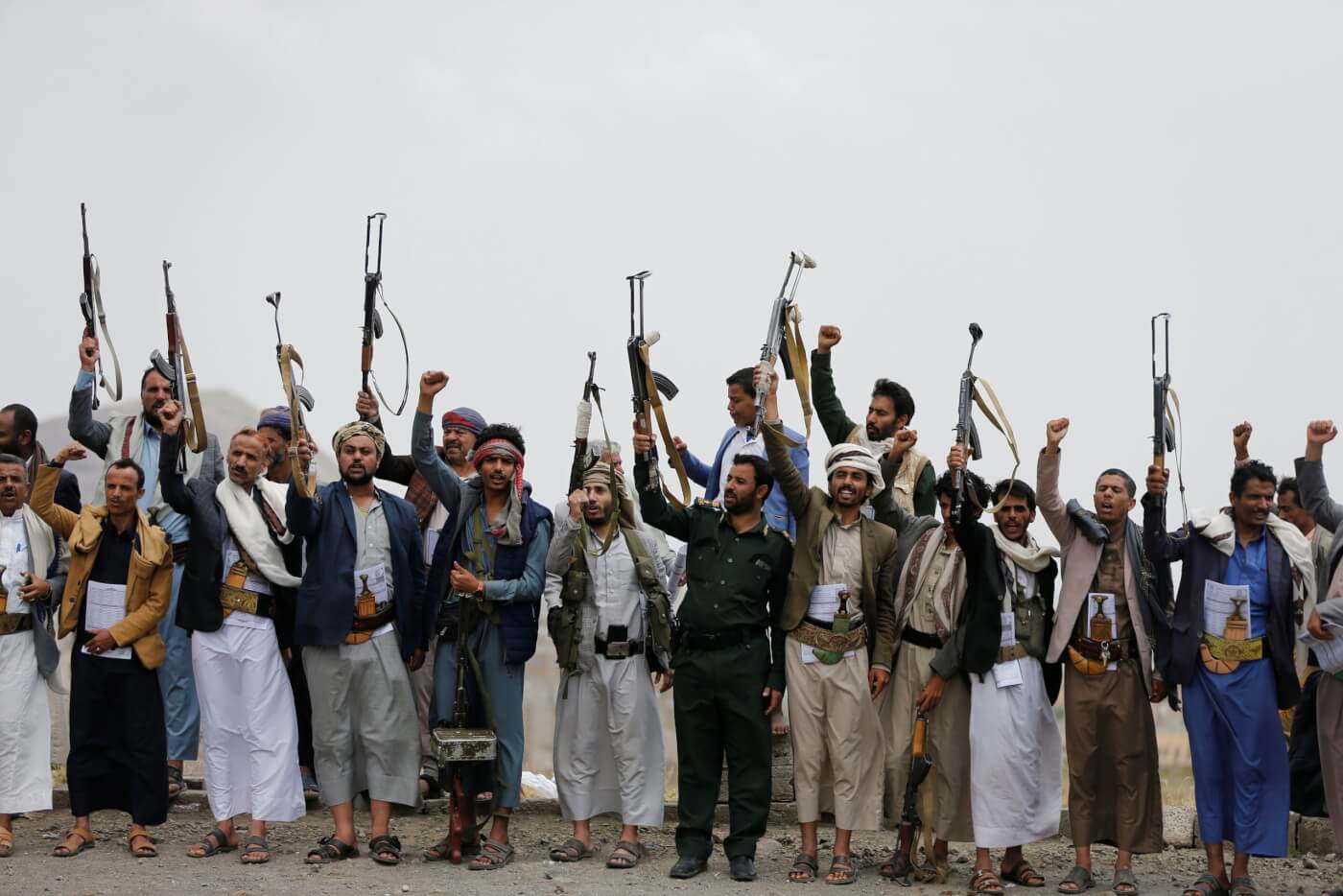Yemen’s Iranian-backed Al-Houthi militia – who have controlled large swathes of Yemen since capturing Sana’a from the internationally recognised government in 2014 – have faced fresh calls to reveal the fate of a Yemeni woman kidnapped over two years ago.
In a press release, the Euro-Med Monitor raised the case of Ms. Khaleda Mohammad Al-Asbah, a 57-year-old kidnapped on the streets of Sana’a in May 2018.
Euro-Med Monitor, a human rights organisation advocating for human rights across Europe and the MENA region, state that:
“Khaleda Al-Asbahi suffers from health negligence and harsh and undermining living conditions. In addition, she is, along with the other kidnapped women, being tortured, beaten, and exposed to verbal violence.”
Speaking to Euro-Med, Majed, the son of Al-Asbahi recounts how he received a phone call from the Al-Houthi militia just hours before his mother was kidnapped, informing him of their intentions.
Six months later, in November 2018, Majed received another call from the group. During this brief exchange we were allowed to talk to his mother, who informed him that she is still alive and requested a sum of money and food be sent to be sent to one of her captures.
Apart from a similar phone call three months later, the fate of Al-Asbahi remains shrouded in mystery, prompting Euro-Med to call for answers.
Enforced disappearances have become commonplace among the warring factions in Yemen. The culmination of Euro-Med’s press release called on the internationally recognised Yemeni government to urgently ratify The International Convention for the Protection of All Persons from Enforced Disappearance.
Since the start of the conflict, groups such as the Al-Houthis and those affiliated with the Arab coalition led by Saudi Arabia, have “forcibly detained, agonized, and hidden hundreds of people whose whereabouts are still unknown.”
A July 2020 report, released by the Yemeni Abductees’ Mothers Association (YAMA), said that it had documented 1,059 cases of kidnapping and 312 cases of enforced disappearances in 2019 by the various parties to the conflict in Yemen.
The report said:
“As many as 134 kidnapped persons were killed in airstrikes launched by the Arab coalition on the Community College Prison in Dhamar, while 21 kidnapped persons died as a result of torture by the Houthi militia and three kidnapped persons died at the hands of the STC in Aden,”
The report found that the Al-Houthi group were by far the biggest perpetrators of kidnappings, being directly responsible for 1,030 cases – including 23 women and 11 children last year. There were 18 cases of kidnapping by the STC in Aden and 11 cases by the Saudi-backed government.
YAMA also noted that the Al-Houthi group was also responsible for 303 cases of enforced disappearance against civilians last year while the STC committed five and the Yemeni government were accountable for four.
Enforced disappearances have been steadily rising in Yemen, a trend that Euro-Med attributes to the emergence of a multiplicity of armed parties in the country. Euro-Med states:
“These parties have established their own unlawful prisons, ruled by unlawful procedures. They provide no information about their victims nor do they reveal their investigation procedures with them.”
On the release of their report, YAMA called on the United Nations Security Council, the UN Secretary-General, and the UN envoy to Yemen, Martin Griffiths to intervene and help secure the release of persons kidnapped and forcibly disappeared by the Houthis.
Afrah Al-Akhali, the body’s Foreign Relations Officer said:
“Our suffering is worsening everyday as our sons are held at prisons with terrible conditions, repeatedly subjected to brutal torture, and prevented from medical care amid the spread of different diseases at prisons, endangering their lives and safety,”
The actions of all those responsible for kidnappings and enforced disappearances in Yemen are in flagrant violation of international humanitarian law and a number of UN conventions.
Enforced disappearances are increasingly being used by the Al-Houthis to stifle civil and political opposition.
In April 2020, the group was widely criticised by the Yemeni population for abducting former culture minister and Shura council member Khaled al-Ruweishan from his home in a Sana’a suburb.
On 6 August 2020, Michelle Bachelet, United Nations High Commissioner for Human Rights, highlighted the “unparalleled rights violations and abuses against journalists are being carried out by all parties to the armed conflict in Yemen”, stating:
“They are killed, beaten and disappeared; they are harassed and threatened; and they are jailed and sentenced to death for merely trying to shine a light on the brutality of this crisis”
The International Observatory of Human Rights would like to echo the calls of Euro-Med:Urging the Al-Houthi movement to provide an update on the fate of Ms. Al-Asbah; and for all conflicting parties to cease future kidnappings and forced disappearances.
Read IOHR’s special investigation on four journalists sentenced to death by the Al-Houthi rebels:

